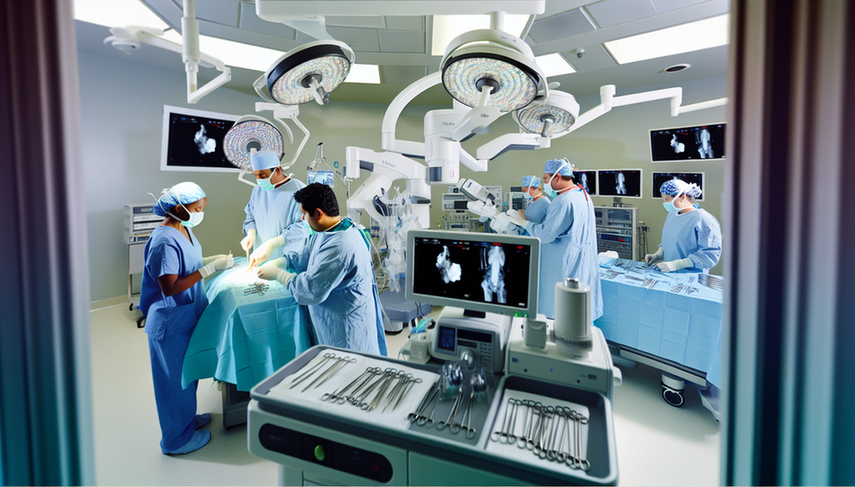Advancements in Minimally Invasive Surgery: Laparoscopy, Robotics, and Rapid Recovery with New Technologies

Minimally invasive surgery has revolutionized the surgical field, offering patients procedures with less postoperative pain, shorter hospital stays, and rapid recovery. In this context, laparoscopy and robotic surgery have emerged as key techniques, driven by new technologies that enhance precision and surgical outcomes.
Diving Deeper into Minimally Invasive Surgery
Laparoscopy has been a cornerstone in minimally invasive surgery, allowing interventions with small incisions and significantly reducing surgical trauma. A recent study demonstrated that minimally invasive distal pancreatectomy reduces functional recovery time compared to open surgery, improving postoperative quality of life for patients.
On the other hand, robotic surgery has overcome some limitations of traditional laparoscopy, offering three-dimensional visualization and greater dexterity for the surgeon. In the case of robotic rectal resection, a reduction in conversion rates and an improvement in specimen quality have been observed, supporting its use as a standard option in the treatment of rectal cancer.
Moreover, Enhanced Recovery After Surgery (ERAS) protocols have optimized postoperative outcomes, reducing hospital stays and associated costs. These protocols, when combined with minimally invasive techniques, have proven effective across various surgical specialties, including urological and gynecological surgery.
Conclusions
The integration of minimally invasive surgery, whether through laparoscopy or robotics, along with rapid recovery protocols, represents a significant advancement in modern surgical care. These techniques not only improve clinical outcomes but also optimize the patient experience, reducing recovery time and enhancing postoperative quality of life. As new technologies continue to evolve, it is essential for healthcare professionals to stay updated to provide the best possible care for their patients.
Referencias
- [1] Minimally Invasive Versus Open Distal Pancreatectomy (LEOPARD): A Multicenter Patient-blinded Randomized Controlled Trial
- [2] Enhanced recovery and reduced conversion rates in robotic rectal cancer surgery: a single-center retrospective cohort study
- [3] Enhanced recovery after surgery (ERAS) pathway optimizes outcomes and costs for minimally invasive radical prostatectomy
Created 13/1/2025
